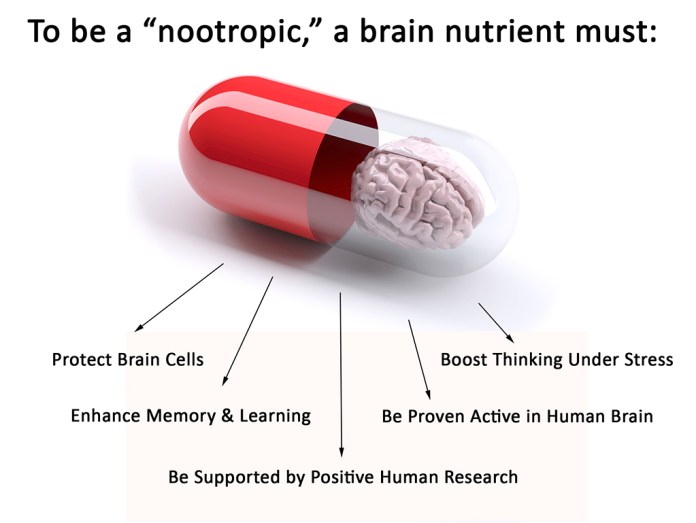Nootropics (pronounced noo-traah-puhks) are compounds or supplements that enhance cognitive performance. This exotic term for so-called smart drugs derives from the Greek word “noos” (mind) and “tropein” (towards).
The Greek roots are appropriate, given that enhancing executive function, including memory, decision-making, and creativity, are goals towards which generations and civilizations have always aspired.
The most effective nootropics are amphetamines such as Ritalin and Adderall. These stimulants and others increase levels of dopamine in the brain, a neurotransmitter known to regulate attention, alertness, and energy.
Stimulants are most effective in individuals with ADHD, and have a long history of use in professions such as piloting and surgery, where sustained attention and fast reaction times are critical.
It is less clear that stimulants enhance performance in other arenas, and self-reported gains may be subject to the placebo effect. Stimulants enhance mood, which in turn leads people to overestimate their performance while under the influence of a smart drug.

Most doctors and psychologists argue that it is preferable to enhance overall cognition and executive function simply by obtaining adequate sleep and exercise, as well as through a healthy, nutrient-rich diet.
The USA leads the developed world in the use of stimulants: in 2017, 30% of Americans surveyed stated that they had used a drug for cognitive enhancement at least once in the preceding twelve months.
Among this group, 22% had used amphetamines such as Ritalin. Countries with high rates of ADHD diagnosis, such as the USA, Australia, and Canada, have correspondingly high rates of off-label or non-prescription use of these stimulants.
Indeed, only 4% of respondents acquired the smart drug via a medical prescription.
There are many risks associated with stimulant use, especially if the drug is used off-label and without medical consultation and supervision.
Physical side effects include elevated heart-rate and risk of stroke and insomnia. Psychological side effects can include hallucinations and addiction.
The use of stimulants is often questioned for ethical as well as medical reasons.
Just as steroids are considered unacceptable in sporting competitions, stimulant use among students, especially in standardized test settings, is widely deplored, though it is impossible to know just how advantageous stimulants are in study prep or test-taking.
Psychology Today / ABC Flash Point News 2023.
I am with the doctors advice- sleep/exercise and most of all a GOOD diet -no trash food .
21 side effects from taking those drugs –they —make- you ill !!
The process was meant to lead the way to eternal life, using humans as guinea pigs along the way. Enhancement of life starts with providing cells with more energy to make the difference between life extension and/or early human designed (Covid-19) death.
For righteousness is immortal.
And a righteous person is of more worth than gold.